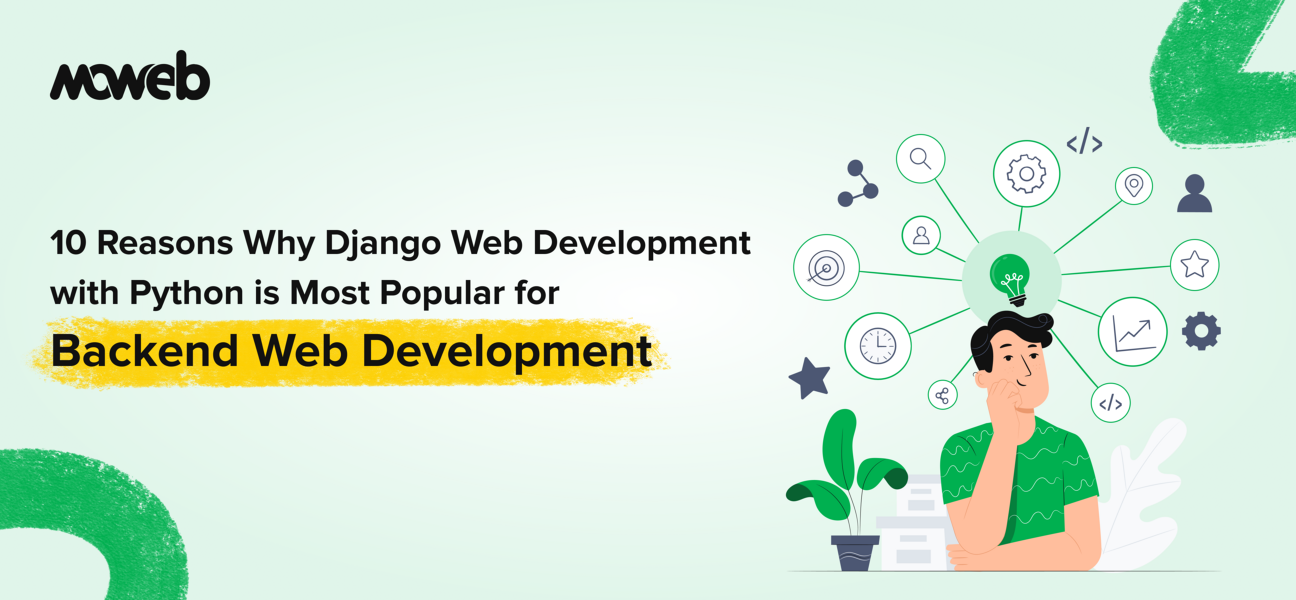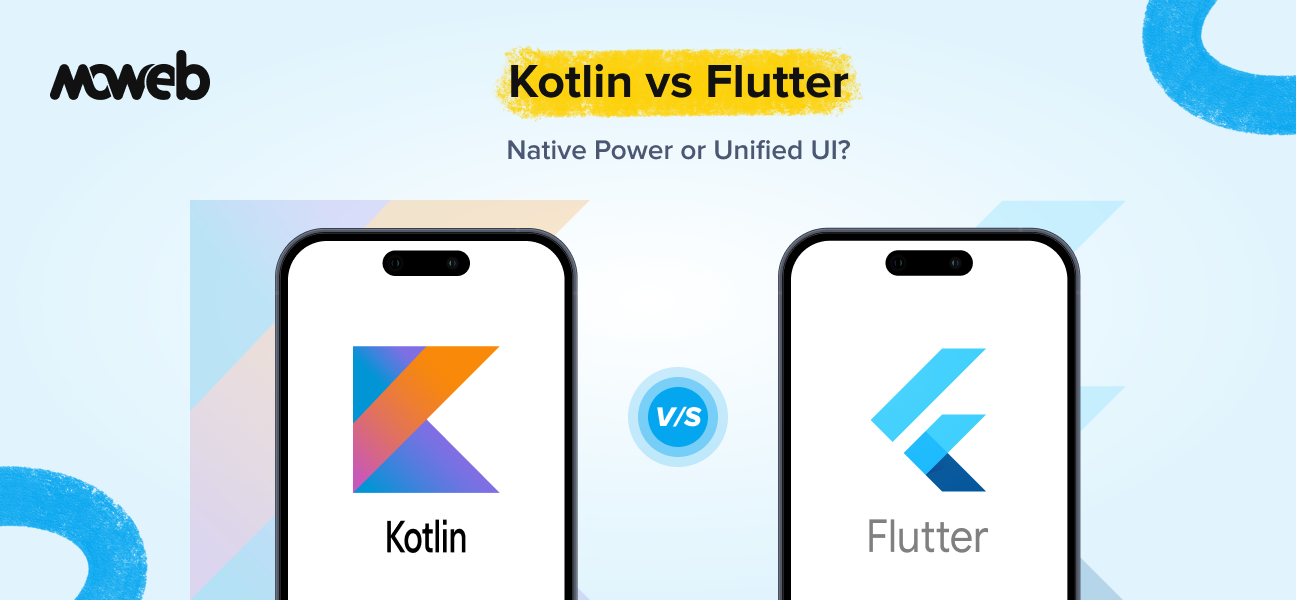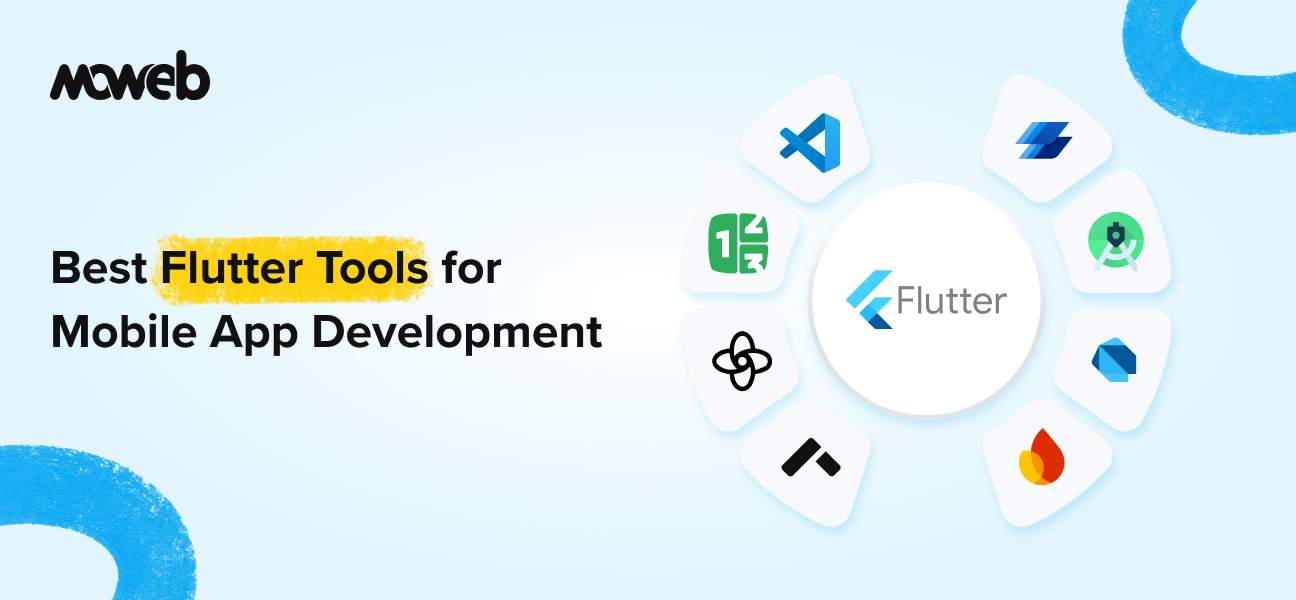
Overview
This blog highlights why Django with Python, a powerful framework, is a top choice for backend web development in 2024. From fast development to strong security, Django offers the tools needed for building scalable, high-performance applications. Discover the ten key reasons developers and businesses alike choose Django for its flexibility, rich libraries, and powerful API capabilities.
Introduction
In the world of web development, a standout framework can make all the difference in creating powerful, scalable, and secure web applications. Enter Django, a high-level Python framework that has risen to the top choice for backend web development. Django, coupled with Python’s flexibility and simplicity, enables developers to create dynamic web applications efficiently, providing an advantage in both speed and functionality. But what makes Django web development with Python such a popular choice for backend developers?
In this blog, we’ll explore the 10 core reasons why Django, powered by Python, is a trusted and preferred framework for backend web development. Whether you’re a startup founder or an enterprise leader, these insights will show you why Django could be the best fit for your next web development project.
1. High-Speed Development
Django is built with speed in mind, allowing developers to focus on unique aspects of a project while leveraging built-in components for common functionalities. Its “batteries-included” approach provides ready-to-use modules for tasks like user authentication, session management, and URL routing, accelerating the development process.
Platforms like Pinterest benefit from Django’s rapid development capabilities, which help them quickly roll out new features and improvements to enhance user experience without extensive development cycles.

2. Django with Python: Readability and Flexibility
Python’s syntax is known for being straightforward and readable, reducing development time and making code maintenance easier. Django inherits these qualities, fostering a collaborative development environment where team members can easily understand and modify code as needed.
Disqus, a popular comment management platform, relies on Python’s readability in Django to maintain clean, adaptable code, making collaboration seamless and ensuring long-term flexibility in development.
3. Comprehensive Security Features
Django includes built-in security features that address vulnerabilities such as SQL injection, XSS, CSRF, and clickjacking. These security measures are pre-configured, minimizing the need for additional code and allowing developers to focus on creating secure applications.
Mozilla, the company behind the Firefox browser, uses Django’s robust security features to protect its user data and secure backend systems against common web vulnerabilities, building user trust in their platform.

4. Scalability for Growing Projects
Django is designed to handle high traffic loads and complex data flows, making it an excellent choice for applications expected to grow rapidly. Its modular nature enables it to scale up or down as needed, maintaining performance under increased user demand.
Instagram uses Django’s scalability to support millions of daily active users, allowing the app to deliver a smooth experience even with large volumes of data and real-time interactions.
5. The Django REST Framework for API Development
Django REST Framework (DRF) streamlines the development of APIs, offering robust tools for creating secure, scalable APIs. DRF is compatible with mobile and web applications, making it a versatile choice for backend and API development.
Companies like Spotify use DRF to build APIs that integrate with web and mobile applications, enabling smooth data exchanges between users’ devices and the server to provide a seamless music streaming experience.
6. Extensive Libraries and Community Support
Django’s extensive library ecosystem and active community mean developers have access to a vast array of pre-built tools for implementing complex functionalities. This ecosystem shortens development time and reduces costs, as there’s less need to develop custom code from scratch.
NASA utilizes Django libraries to streamline data-intensive tasks and implement functionalities quickly, relying on community support to maintain and scale their projects effectively.

7. Excellent Documentation and Learning Resources
Django is known for having some of the best documentation available, which is especially helpful for new developers. This comprehensive documentation, coupled with an abundance of tutorials, forums, and resources, ensures that development teams can quickly learn and implement Django’s features.
Many educational platforms, including Coursera, rely on Django’s well-documented framework to build and update complex systems, while also offering a smooth learning curve for their development teams.
8. SEO-Friendly Architecture
Django’s support for clean, readable URLs aids in improving search engine rankings. Its architecture ensures that applications built on Django are optimized for search engines, making it easier for businesses to boost their online visibility.
YouTube (in its early years) used Django to structure SEO-friendly URLs, which helped the platform attract and retain more users by improving search engine accessibility.
Related Post: Python Django in 2025: Will It Remain the Top Choice for Web Development?
9. Versatile and Modular Design
Django’s modular design allows developers to use only the components they need for a particular project, adding or removing modules as necessary. This flexibility enables custom-built solutions that match specific business needs without overloading the system.
The Washington Post leverages Django’s modular nature to create custom, feature-rich sections on their website, offering readers a tailored experience based on various editorial needs and interactive content.
10. Cost-Effectiveness and Open-Source Advantage
As an open-source framework, Django is free to use, reducing development costs significantly. Its widespread adoption means there’s a large pool of qualified Django developers, making it accessible for startups and businesses of all sizes.
Eventbrite, the event management and ticketing platform, benefited from Django’s cost-effectiveness during its initial stages, allowing them to scale and add new features without substantial investment in licensing fees.

Why Choose Moweb Limited for Your Django Web Development Needs?
At Moweb Limited, we specialize in Django web development, delivering scalable and secure applications tailored to your unique needs. Our experienced team of Django and Python developers combines technical expertise with a deep understanding of business objectives, ensuring we create solutions that drive success.
If you’re ready to elevate your backend web development with Django, our experts are here to guide you every step of the way.
Here’s your chance to elevate your backend with Django and Python for Web Development
Choosing Django for your backend web development is more than just opting for a framework. It’s a strategic move toward creating robust, scalable, and secure web applications that align with your business objectives. Django’s versatility, combined with Python’s simplicity and readability, enables high-speed development, making it ideal for projects of any scale. With Django, you’re tapping into an ecosystem built for efficiency, security, and future scalability, backed by a global community and extensive libraries that support both web and mobile applications.
At Moweb Limited, we understand that each project comes with unique requirements. Our team of expert Django developers and Python specialists is committed to delivering top-notch, tailored solutions that transform your ideas into impactful digital products. Whether you’re a startup looking for quick deployment or an enterprise aiming for a robust backend architecture, Django offers the tools and flexibility to meet those needs. Connect with us to explore how Django can elevate your backend development and drive long-term success for your business.

FAQs
1. Why is Django with Python considered the best choice for backend web development?
Django with Python is favored for backend web development due to its robust framework, which supports rapid development, security, and scalability. Django’s high-level Python framework provides pre-built components that reduce coding time and allow developers to focus on building specific application features. This makes Django an ideal choice for businesses aiming to create dynamic, scalable applications while minimizing development costs and time. Many top companies rely on Django due to its modular design and extensive library support, making it a reliable and efficient framework for backend development.
2. How does Django ensure high security in web development?
Django includes numerous built-in security features, such as protection against SQL injection, cross-site scripting (XSS), cross-site request forgery (CSRF), and clickjacking. These security features are automatically enabled in Django, meaning developers don’t have to add extra security code. Additionally, Django’s framework encourages the use of secure practices and keeps up with the latest security standards, making it a go-to choice for backend developers who prioritize user safety and data security in their web applications.
3. Is Django suitable for both small and large-scale applications?
Yes, Django is highly versatile and can handle both small and large-scale applications effectively. For small projects, Django offers simplicity and quick setup, allowing startups and smaller businesses to develop MVPs and deploy them in record time. For large-scale projects, Django’s scalability and robust database support make it ideal for handling complex data flows and high user volumes. As a result, many enterprises and well-known brands, such as Instagram and Pinterest, use Django to manage millions of daily users without compromising performance.
4. How does Django’s REST Framework benefit API development?
The Django REST Framework (DRF) simplifies the process of building APIs by providing a powerful toolkit for developers. DRF offers features like authentication, serialization, and easy database integration, which allow developers to create high-quality, scalable APIs quickly. This framework is particularly useful for businesses building mobile and web applications that need seamless back-end connections. By using Django’s REST framework, developers can ensure that their APIs are robust, secure, and efficient, making it a popular choice for backend API development in data-driven and real-time applications.
5. How can Moweb Limited help me get started with Django web development?
At Moweb Limited, we specialize in Django web development with a team of experienced Python and Django developers who bring expertise across diverse industries. Our Django development services are tailored to meet your project requirements, from API development to complex backend architecture. We provide end-to-end support, including consultation, custom development, testing, and ongoing maintenance. Our goal is to ensure your web application is scalable, secure, and optimized for future growth. Contact us to see how we can bring your ideas to life with Django and Python.
6. Is Django a Backend Framework?
Yes, Django is primarily a backend framework for web development. It is written in Python and provides tools for handling server-side logic, databases, URLs, security, and more. While Django includes some frontend templating capabilities, its main strength lies in backend development. However, it also includes templating for basic frontend rendering.
7. Can Django be used for frontend development?
Django has templating (HTML rendering) but is not a frontend framework like React or Vue.js. For dynamic frontends, Django is often paired with JavaScript frameworks.
Found this post insightful? Don’t forget to share it with your network!





